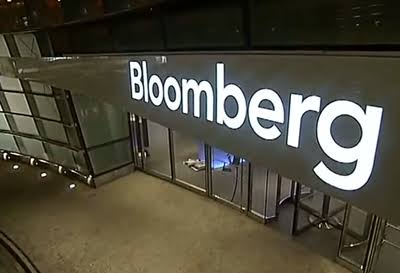Nigeria’s naira has plunged to a record low of N600 to $1 according to Bloomberg report.
The report posited that Nigerian officials look set to phase out currency controls that have distorted Africa’s biggest economy for years.
The naira slid 21% to be indicated at 600 per dollar, in the biggest decline since a devaluation in 2016, according to data compiled by Bloomberg.
The stock market and government bonds surged as investors welcomed the prospect for the latest in a series of reforms by President Bola Tinubu.
A discussion on letting the currency trade more freely is ongoing at the central bank, a senior banking official told Bloomberg on Wednesday, asking not to be named because the deliberations were private. Directives on the currency could be issued later today or at the latest tomorrow, the person said
The central bank didn’t immediately respond to requests for comment.
Supply & demand
Local banks are already being told that going forward, the naira’s exchange rate against the dollar will be determined through supply and demand rather than by the central bank, another senior banking official said. The bankers had said they were expecting a strong depreciation of the naira at the official spot window.
It wasn’t immediately clear if the authorities would let the currency move entirely freely or usher in a more limited move via devaluation with some controls remaining in place. All the same, analysts greeted the report as heralding another step in the right direction for the economy since Tinubu’s election.
“This is absolutely the right decision and a reality check that the country needs, highlighting how the new leadership means business,” said Simon Quijano-Evans, chief economist at Gemcorp Capital Management in London.
Nigeria’s government bonds extended gains, having already surged earlier this week after the surprise weekend ouster of central bank Governor Godwin Emefiele. Emefiele’s removal was adding to signs that Tinubu is moving quickly to reset policies blamed for crippling the economy. The notes maturing in 2051 gained 2 cents on the dollar to 74, compared with around 70 last week.
Nigeria’s benchmark stock index rallied more than 3%. The potential changes in economic policy should help boost output in the longer term by freeing up budgetary resources and making the economy run smoother, Quijano-Evans wrote in a note.
Black market
“Mid-term, the increase in efficiency should also help revive growth if the government is able to tackle corruption,” Quijano-Evans said.
Liberalisation of the naira under a new presidential administration was expected, but the depth of the drop on Wednesday was surprising, said Mark Bohlund, a senior credit research analyst at REDD Intelligence.
“My expectation was for a smaller downward shift now and for the naira to end up closer to NGN750/USD by the end of the year,” Bohlund said. “The devaluation will help the federal government to better balance its books as it is still highly dependent on USD-linked oil revenue while spending is in naira.”
Under Emefiele, Nigeria’s central bank offered the US dollar through several windows at tightly controlled rates, with little liquidity, to businesses and individuals.
That forced many to the black market, where the dollar traded more freely but at about a 60% premium to the official rate.
Wale Edun, an influential member of Tinubu’s advisory board, told Bloomberg by phone on Monday that the unification of exchange rates was “imminent.” Folashodun Shonubi, a deputy governor in charge of operations at the bank, has been acting as governor since Emefiele’s ouster on Friday.
Share your story or advertise with us: Whatsapp: +2347068606071 Email: info@newspotng.com












